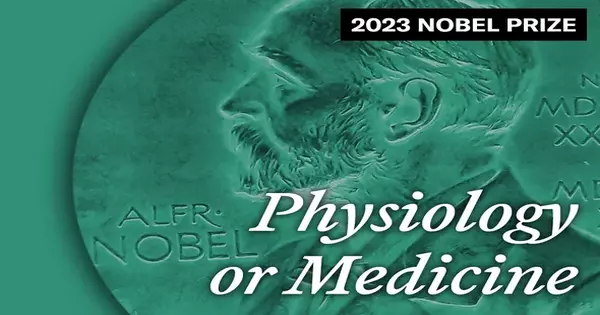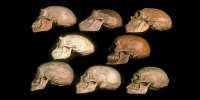This year’s Nobel Prize in Physiology or Medicine is awarded to a groundbreaking medical technology that drastically altered the course of the pandemic and saved millions of lives: COVID mRNA vaccines. Katalin Karikó and Drew Weissman shared the prize for their contributions to vaccine development and researchers’ understanding of how messenger RNA (mRNA) interacts with the body’s immune system.
Weissman discusses the emotional rollercoaster he experienced after hearing the news this morning in an interview with Scientific American. “I’m going through a series of steps, it started off just incredible enjoyment and surprise,” he said. “And right now I’m pretty much numb.”
When Karikó and Weissman were working together at the University of Pennsylvania in the 1990s, they began researching in vitro synthetic mRNA technology. In 2005, the pair published a landmark study describing how they were able to successfully transfer modified mRNA into the body and trigger an immunological response—the type that trains the immune system for future viral infections.
The award, to me, is really a victory for vaccines and the potential for vaccines to advance health and improve equity.
Kathleen Neuzil
Over the years, their work with mRNA vaccines has resolved some of the major challenges that have plagued the technology, such as the body’s inflammatory response, which involves the generation of damaging cytokines. During the pandemic, this mRNA technology enabled the development of extremely efficient vaccines against SARS-CoV-2, the COVID-causing virus, as well as those that were adaptable for large-scale distribution.
“What’s important here I think is that vaccines could be developed so fast,” said Gunilla Karlsson Hedestam, a member of the 2023 Nobel Committee for Physiology or Medicine, at this morning’s announcement. This was “largely due to … improvements in the technology and this basic discovery.”
Karikó was born in 1955 in Szolnok, Hungary. In 1989 she became an assistant professor at the University of Pennsylvania, where she remained until 2013. She was a senior vice president at BioNTech RNA Pharmaceuticals—a major manufacturer of an mRNA COVID vaccine—and is now an external consultant for BioNTech. She is also a professor at the University of Szeged in Hungary and an adjunct professor at the Perelman School of Medicine at the University of Pennsylvania.

Weissman was born in 1959 in Lexington, Mass. In 1997 he established his research group at the Perelman School of Medicine. Weissman is Roberts Family Professor in Vaccine Research at the University of Pennsylvania and director of the Penn Institute for RNA Innovation.
“The award, to me, is really a victory for vaccines and the potential for vaccines to advance health and improve equity,” says Kathleen Neuzil, a vaccinology professor and director of the Center for Vaccine Development and Global Health at the University of Maryland School of Medicine.
Many vaccines were developed using weakened or deactivated entire viruses, but in recent decades, many researchers have focused on smaller viral components, such as viral genetic material: DNA or RNA. When Karikó and Weissman injected the foreign in vitro mRNA into human cells, they discovered that it triggered a robust immune response that resulted in an increase in protective antibodies. However, subsequent inflammation, as well as enzymes found in human blood and cells, would destroy the mRNA. Despite these scientific barriers, mistrust, and funding challenges, Karikó and Weissman persisted in their search for solutions.















